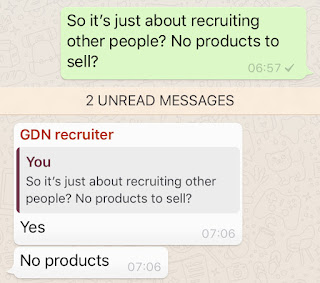I bought a couches last year September. Sometimes this year after the first lockdown I realized that when I seat on them I tend to sink. So I logged a complaint with the store. After a couple of weeks they sent someone to come assess the couch. He left with the word that they would come and collect the couch for repairs. That never happened until I called the store several times, then on the 8 July in the evening they came and collected the three seater couch.
They had promised to bring it after a day or two. On Saturday 11 July I called them only to be told they can't bring it over the weekend. So they said they will deliver on Monday 13. I opposed that as I had to work that same day, then we agreed for the next day. They only got to call me later in the day telling me the driver got lost. They say my phones were not available, yet I used the same number to enquire about the delivery.
The day they took the couch, I remained with the two seater from the same set of chairs. Now the two seater has the same problem yet I haven't been using it. It been in my spare room due to the limited space in my living room. I informed them once again of the same problem. They said they would bring the one they took and they would take the second couch. I called them yet again telling them that um not satisfied with the quality of the set therefore I need a different make. I was told I should pay an amount of P1149 for the usage of the set.
Please assist I need new couches and need the store to assist me in a proper manner better than what I have been through.

Section 15 (1) of the Consumer Protection Act says that goods must be “of good quality, in good working order and free of defects”. Clearly that’s not the case with your furniture. Normally the procedure would be to allow the store to take the goods back and offer you one of the three Rs, a refund, replacement or a repair. However, it’s up to the store to decide which R to offer you. This store is entitled to attempt to repair both of the couches. But just once. The Act continues to say that if the same problem occurs again within three months the consumer can now demand either a replacement or refund. There’s no second chance to repair something.
In your case it’s more complicated because it seems like they are willing to offer you a replacement but they want to charge you P1,149 for the time you had the couches. Unfortunately, that’s probably reasonable. You had the couches from September until April when they first started to fail you and in that period you had the use of them. I admit not for as long as you would have hoped but for those 7 months the goods were fine.
I suggest that you either give the store one opportunity to repair the couches, or, if you can afford it, pay them the amount they requested to get new replacements.
Can I claim?
Kindly help or clarify if this is ok. I took a loan in November 2019 of which I was asked to pay for the loan insurance also. I was told that the insurance is to cover my loan in case i lose my job in 6months. So 6 months down the line I was retrenched and now I was told that I don’t qualify to be covered because the retrenchment was initiated before the 6 months period where my retrenchment letter was dated 30th April 2020.
I need help on this please. I’m currently job hunting and I don’t have money to pay for the loan.
This is really unfortunate. You’ve been incredibly unlucky. Many insurance products such as the one that came with bank loan have a waiting period before which you’re not able to submit a claim. It happens often with life insurance policies but also funeral plans and vehicle policies. It also happens very often with polices that cover retrenchment. This is all to prevent people who suspect that an unfortunate event, like illness, retrenchment or even death is likely to happen from getting a policy deliberately to cover that event.
The really bad piece of luck for you is that even if you took out the loan on the 1st November last year, your retrenchment date was exactly six months minus one day after the policy was created. It’s even less if you took out the loan some time later in November.
Looking back it might have been wise to ask your employer to date the retrenchment letter a day or more later but that’s too late now the bank know all the details.










